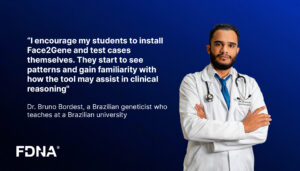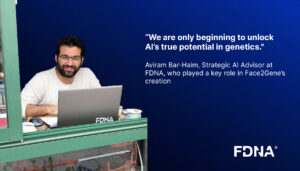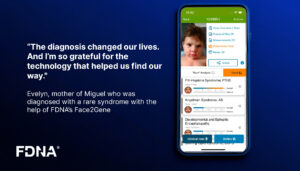January 9, 2019
The article investigates the potential of artificial intelligence to detect rare diseases by analyzing dysmorphic facial appearances. Researchers are utilizing AI algorithms to scan facial features for abnormalities that may indicate genetic disorders. This cutting-edge technology analyzes patterns and subtle nuances in facial structure that are often linked to rare conditions. By leveraging large datasets of facial images, the AI system enhances diagnostic accuracy and speed, enabling earlier interventions and personalized treatment plans. The article highlights how this innovative approach could revolutionize the field of rare disease diagnostics, offering hope for improved patient outcomes through the identification of dysmorphic facial appearances.


